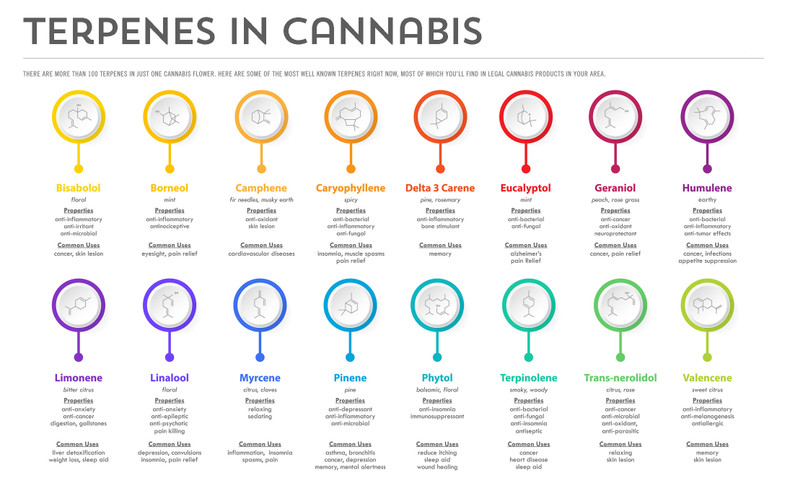Terpenes are a class of organic compounds that are naturally occurring in many plants, including those used for medicinal and recreational purposes. They are responsible for the unique aroma and flavor of different strains of cannabis, as well as many other plants. In recent years, the use of terpenes in vape cartridges has become increasingly popular, as they offer a range of benefits beyond just aroma and flavor. However, not all terpenes are created equal when it comes to compatibility with atomizers. In this article, we will explore the different terpene compounds and their varying levels of corrosiveness with atomizers in vape cartridges.
First, let's define what an atomizer is. An atomizer is a component of a vape cartridge that vaporizes the liquid, which is typically a mixture of terpenes, cannabinoids, and a carrier oil. Atomizers can be made from a variety of materials, including ceramic, metal, and silicone. The type of material used can greatly impact the compatibility of the atomizer with different terpene compounds.
One of the key factors that determines the corrosiveness of a terpene is its chemical structure. Some terpenes are highly acidic, which means they can corrode and erode certain types of atomizers. For example, terpenes like pinene and limonene have been known to corrode and erode ceramic atomizers. On the other hand, terpenes like myrcene and linalool are much less acidic and are generally considered to be more compatible with atomizers.
Another factor that can affect the compatibility of a terpene with an atomizer is the temperature at which it is vaporized. Higher temperatures can cause some terpenes to break down and form compounds that can be corrosive to atomizers. This is particularly true for terpenes like caryophyllene and humulene, which are known to break down at higher temperatures.
To minimize the risk of corrosion, it is important to use the right type of atomizer for the specific terpene compound you are using. For example, if you are using a terpene that is known to be corrosive to ceramic atomizers, you should consider using a metal or silicone atomizer instead. Additionally, it is important to keep the temperature of the vaporization process as low as possible to minimize the risk of terpene breakdown and corrosion.
In conclusion, the corrosiveness of different terpene compounds with atomizers in vape cartridges can vary greatly. Some terpenes are highly acidic and can corrode and erode certain types of atomizers, while others are much less corrosive. To ensure optimal performance and longevity of your vape cartridge, it is important to choose the right type of atomizer for your specific terpene compound and to keep the temperature of the vaporization process as low as possible.

